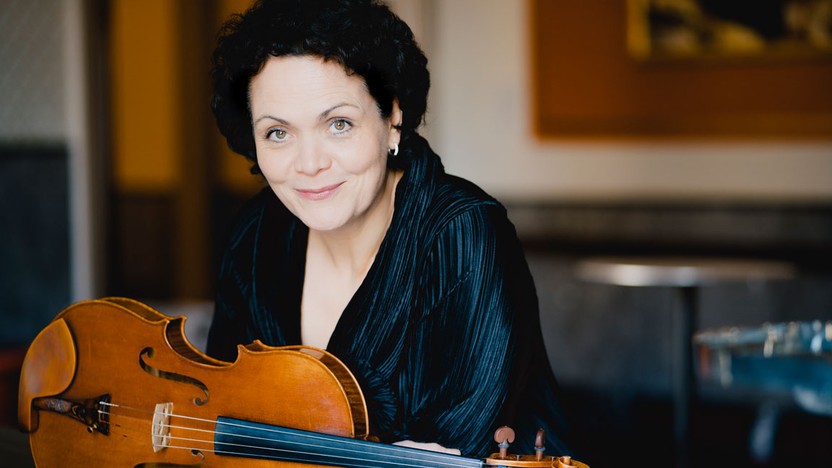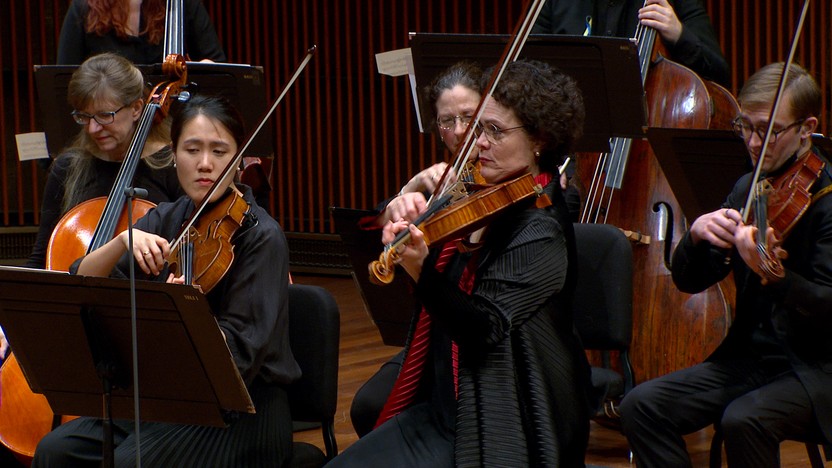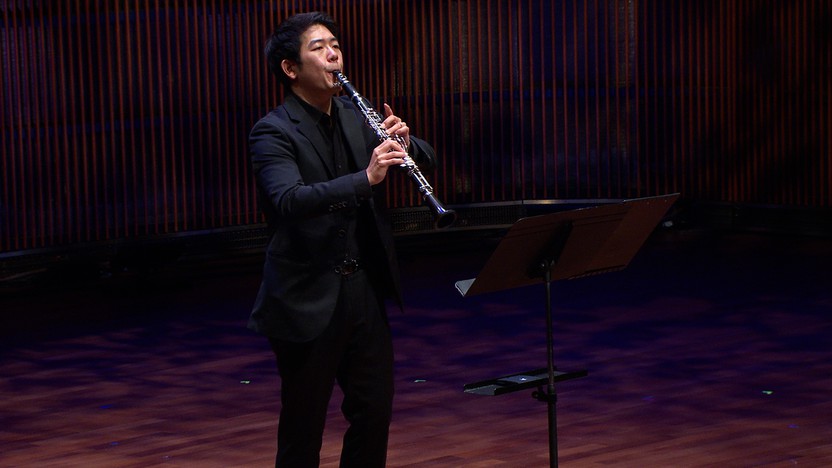Details
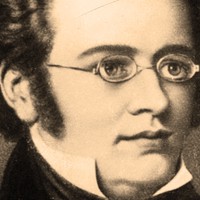
Franz Schubert
Selections from Rosamunde (15 min)
Among the many frustrations in Franz Schubert’s tragically short career, none came close to the difficulties he encountered in the world of theater music, with sixteen failed operas in as many years. He had a habit of working with subpar librettos written by his friends; some scores he wisely abandoned midway, and others he brought to fruition only to see them fizzle. A last-minute invitation in 1823 to compose incidental music for the play Rosamunde might have helped opened doors for Schubert in Vienna’s theatrical circle, but the drama by Helmina von Chézy was a flop. The play closed, and Schubert’s music was lost for decades.
Schubert assembled nearly an hour of music for Rosamunde in a matter of weeks, pulling in some movements from existing works. His innate gift for melody comes to the fore in the Entr’acte No. 3, a gentle Andantino movement with an elegant string theme in the outer sections and a contrasting episode featuring tuneful woodwind solos. The Ballet Music No. 2 features a crisp, marching gait that tumbles into a lively triplet pulse for a contrasting episode.
Aaron Grad ©2025
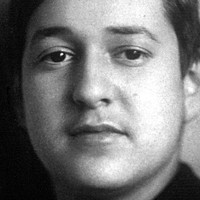
Erich Wolfgang Korngold
Symphonic Serenade (35 min)
Erich Korngold is best remembered for his role in reshaping the art of film scoring by borrowing techniques from grand opera. Born in Moravia (now part of the Czech Republic) and raised in Vienna, where his father was an influential music critic, Korngold developed into a child prodigy of the highest order, hailed as a genius by Gustav Mahler, Richard Strauss and countless others. By the age of thirty, Korngold had completed four operas and was teaching in Vienna. He scored his first film in 1934 and continued to shuttle between Europe and California for several years, but after the runaway success of The Adventures of Robin Hood (which won the Oscar for Best Original Score), and in light of the Nazi annexation of Austria in 1938, Korngold settled permanently in the United States.
The end of World War II and the rejuvenation of the arts in Europe left Korngold eager to return to concert music. After presenting two major orchestral works — a revision of his Violin Concerto in 1945 and a new Cello Concerto in 1946 — Korngold retired from film scoring in 1947. He started an enormous symphony that year, and he also composed this Symphonic Serenade, designed for the strings of the Vienna Philharmonic.
Korngold’s Symphonic Serenade belongs to the same tradition as the string serenades by Antonín Dvořák and Pyotr Ilyich Tchaikovsky, two Romantic composers with enduring affection for Wolfgang Amadeus Mozart and his Classical style. Born out of the type of party music that Mozart wrote to entertain guests at evening gatherings, there is a lingering lightness that defines these serenades from later centuries, as heard in the sweet simplicity of Korngold’s initial theme, or in the effervescent plucking of the Intermezzo. Still, these first two movements expand with more nuance and gravity than might be expected of a typical serenade — a good justification for the “Symphonic” part of Korngold’s title.
From the religious undertones of its solemn start to the anguish of its piercing climaxes, the slow movement strays farthest from the cheerful expectation of a serenade, recalling the expansive Romanticism of Mahler and early Arnold Schoenberg — the soundtrack of Korngold’s youth in Vienna. The finale’s menacing main theme might give the impression that the serenade is heading toward a stern ending, but the deft juggling of formal counterpoint and the rondo-like excursions to other themes bring out this music’s wry humor, very much in character with the Classical-era finales of Mozart and Joseph Haydn.
Aaron Grad ©2025
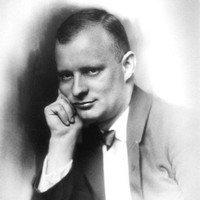
Paul Hindemith
Kleine Kammermusik for Flute, Oboe, Clarinet, Horn and Bassoon (13 min)
Noah Kay, oboe
JJ Koh, clarinet
Demetra Alikakos, bassoon
Michael Petruconis, horn
As the concertmaster of the Frankfurt Opera Orchestra and the second violinist in a quartet led by his former teacher, the 22-year-old Paul Hindemith was on track for a spectacular career as a performer. It was only after his brief military service during World War I, when he played bass drum in a military band and dodged grenades as a sentry in the trenches, that he began to identify more as a composer. When he presented a concert of his own music in 1919, it was successful enough to earn him a publishing contract, and he soon became a trendsetter in that period of rapid upheaval and reinvention for post-war Germany.
When Hindemith composed Kleine Kammermusik (Little Chamber Music) for wind quintet in 1922, it aligned with a rising trend in visual arts that a critic dubbed “Neue Sachlichkeit,” or “new objectivity.” As an artistic rebuttal to the hyperbolic grandiosity of Romantic and Expressionist styles — products of the old world order that brought about immeasurable destruction — Hindemith and his sober-eyed peers just wanted to create practical works of art that served their function effectively.
In this score and its Kammermusik siblings that continued to come out through 1927, individual instruments are ideal vehicles for this unsentimental and democratic approach to music. The first movement of Kleine Kammermusik, propelled by a marching rhythm that mirrors the rat-a-tat of a military drum, passes its angular theme around the ensemble equitably. (Only the French horn gets left out of the spotlight there, but it gets its own solo turns in the disorienting waltz that follows.) The slow third movement, marked “calm and simple,” is the longest section, and it shows the side of Hindemith that basked in the horizontal intricacies of note-against-note counterpoint from the Baroque era. Stuttering ensemble interjections separate idiomatic cadenzas in the quick fourth movement, and then the finale uses more chattering rhythms to keep this no-nonsense quintet surging forward to the finish.
Aaron Grad ©2025
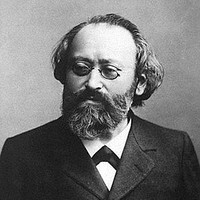
Max Bruch
Concerto for Clarinet and Viola (19 min)
By the age of 20, Max Bruch was captivating German audiences as a budding opera composer, and for the next fifty years he built his sterling reputation on his many works for choir and individual voices. But modern audiences tend not to know of Bruch’s vocal roots, given the outsize influence of a handful of scores he wrote for soloist and orchestra, including Kol Nidrei for cello, the Scottish Fantasy for violin and, above all, the First Violin Concerto.
The 73-year-old Bruch added one last concerto in 1911, at a point when he was suffering from poor health and retreating from most of his public duties. He was inspired to write it for his own son, Max Felix Bruch, who at 27 had matured into a gifted clarinetist. It seems fitting that it was the sweet tone of the clarinet that lured Bruch back to composing, just as it had for the composer he emulated more than any other, Johannes Brahms, who came out of retirement to compose for clarinetist Richard Mühlfeld. And that tradition of personal affection leading to immortal clarinet music goes back even further to Wolfgang Amadeus Mozart, who wrote a series of late scores for his dear friend Anton Stadler, including a pioneering trio for clarinet, viola and piano. That trio must have informed Bruch’s choice to write a score for his son with the same instrumentation in 1908, and he returned to the exceptionally warm combination of clarinet and viola in this final concerto.
Echoing the immortal start of his violin concerto and its free-flowing prelude, this Double Concerto begins with the viola and clarinet exchanging cadenza-like statements to begin the mellow first movement set in a relaxed Andante con moto tempo. Instead of a slow middle movement, a tuneful statement with a swaying pulse serves as an intermezzo. A fanfare figure launches the vigorous finale that ramps up the virtuosity and contrapuntal entanglement for the two soloists.
Aaron Grad ©2025
About This Program
Artistic Partner Tabea Zimmermann teams up with Principal Clarinet Sang Yoon Kim in a double concerto full of rhapsodic, Romantic flourish and lush harmonies that intertwine with the sound of the full orchestra. Dedicated to his son, clarinetist Max Felix Bruch, Max Bruch’s Double Concerto promises to grip and transfix audiences alongside smaller symphonic works by Germanic composers.

